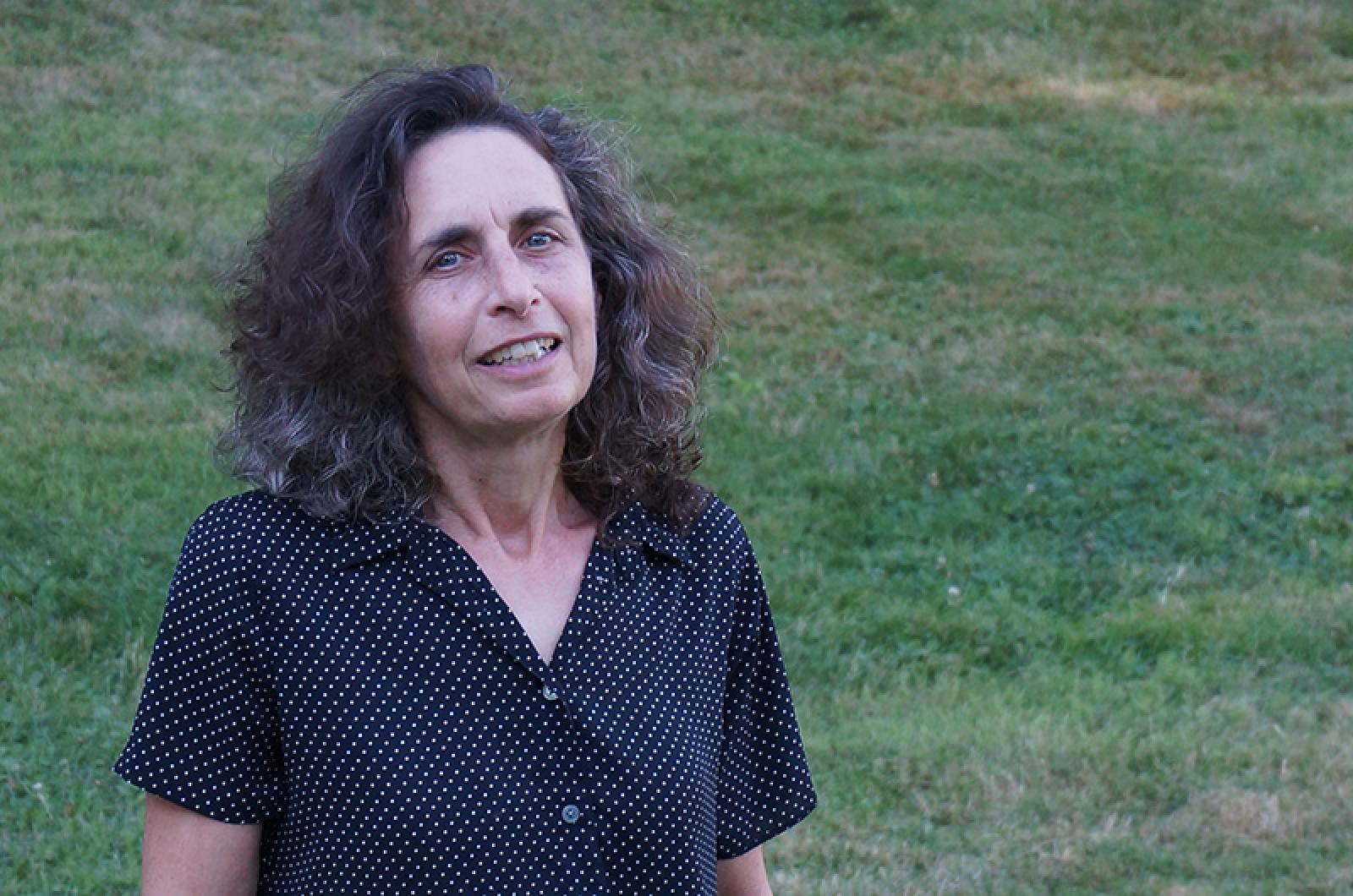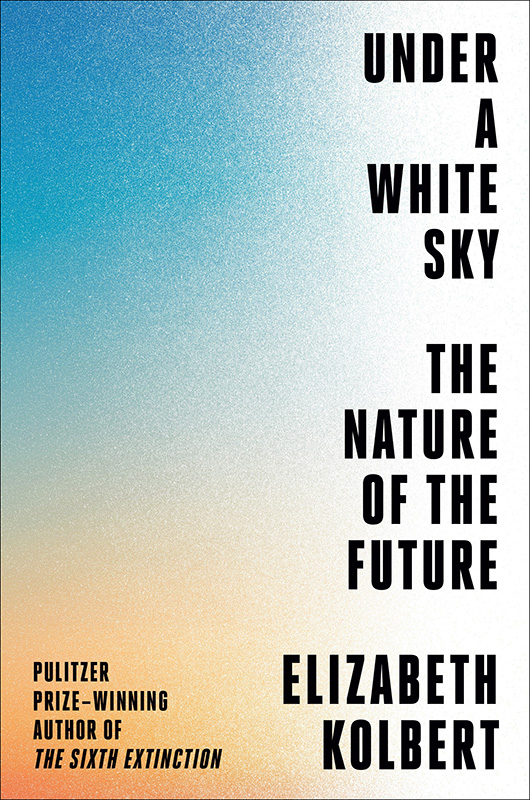Elizabeth Kolbert won a Pulitzer Prize for her bestseller, The Sixth Extinction, and is a staff writer at The New Yorker. In her new book, Under a White Sky, The Nature of the Future, she looks at man’s manipulation of the natural world as it relates to the climate crisis.
In advance of her appearance at the Martha’s Vineyard Book Festival, Ms. Kolbert spoke with Liz Durkee, climate change planner at the Martha’s Vineyard Commission.
LD: What do you think of when you think about Martha’s Vineyard and climate change?
EK: I don’t know the exact geological history but the Vineyard is probably a sort of temporary place. And it is very vulnerable to sea level rise; I don’t think anyone would be surprised to hear that.
LD: In order to be more resilient, as an Island in a climate-stressed world, it seems to me we should try to become more self-sufficient.
EK: The Vineyard is well positioned to try to be “energy independent” or carbon neutral. In terms of self-sufficiency, I think it would be very difficult. You are not going to be agriculturally independent. The land is just too valuable and people aren’t devoting it to growing potatoes.
But the question of resilience is going to be extremely important. My advice is to be pretty bold and think long-term. Sea levels are going to continue to rise, they are not stopping in our lifetimes or really in anyone’s lifetime who is alive today so don’t think about just tinkering around the margins.
LD: We really need to be talking about managed retreat.
EK: Martha’s Vineyard can be a very interesting laboratory because people who have a lot of power and a lot of money are sitting on real estate that is likely to be under water in not that long or will certainly become much harder to live on. It will be pretty interesting to see how they respond.
LD: Most towns have supported a referendum to become a 100 per cent renewable Island by 2040.
EK: People have to be willing to participate. If you want things to be less terrible you have to be willing to participate. It’s all hands on deck. It requires creativity and a certain amount of capital, all of which the Vineyard has.
LD: In your new book you look at the climate crisis and the act of removing carbon dioxide from the atmosphere. We don’t know all the consequences of doing so. It could save us from much suffering or it could further disrupt things. Who decides if we have the right to do this?
EK: Carbon dioxide removal is eminently doable, although expensive. We put up a machine and take carbon dioxide out of the air using chemicals. I don’t think there is a centralized authority. Who should decide these things and who should be regulating them? Obviously we want it to be regulated by some international body that is well informed and has everyone’s best interests at heart. What are the odds of that?
LD: Do you fear that if technology like carbon dioxide removal helps relieve the climate crisis we humans will feel invincible and stop caring about protecting the natural world?
EK: Carbon dioxide removal is a huge task. It is just going to make it a little less worse. I don’t think that anyone is terribly worried that carbon dioxide removal is going to make us feel invincible, although it does have the problem of potentially licensing that much more emissions because people will say, “oh, we’ll take it out.” I think there is resistance to even talking about it for that reason. I think what is changing pretty fast now is a realization, at least in climate circles, is that it is very, very difficult to reach emissions reduction targets without carbon dioxide removal.
LD: One big reason for the huge amount of greenhouse gas emissions is that there are just so many people living on this finite planet, producing and consuming so much stuff. What do you think is harder to do — develop safe technology or change human behavior?
EK: Well, that’s really the question at the heart of the book and the book sort of suggests that both are very hard. We have sort of gotten ourselves into this situation where things are so messed up. We really haven’t made, as a globe, any progress at all, arguably, in cutting emissions. We’ll see what emissions are this year, they’ve dropped.
LD: Why is it so hard?
EK: We have an industrialized society we have built over the last roughly 200 years on burning fossil fuels. And now the developing world wants the economic benefits that come with that and can you do that without fossil fuels? Many people would argue yes but the fact is the answer is rather unclear — no country has done it. So we’ll see.
The other part is — and many environmental groups have done a lot of good research on — there is the huge vested interest in fossil fuel companies which in some cases include entire countries. Saudi Arabia is essentially devoted to extracting oil and they have every interest in preserving the status quo.
I don’t want to rehash the whole history of disinformation by fossil fuel companies but it is significant. In the United States people have said one party, and that happens to be the Republican Party, is basically bought and sold by the fossil fuel industry these days and I think there is a certain amount of truth in that.
LD: On a lighter note, you’re coming to the Vineyard for the book festival in August, the craziest month of the year. What do you like best about the Island?
EK: I haven’t been to the Vineyard in years. I used to really love to go as a kid, when I assume it was a much sleepier place. We would go to the beach, ride bikes, go to the Menemsha Fish Market, and we just laid around.
Elizabeth Kolbert participates in a panel discussion Friday at the Martha’s Vineyard Museum with Mark Bittman and Simon Winchester titled How on Earth?: Land and Our Future, beginning at 11 a.m. She also takes part in an author talk on Saturday at 3 p.m. at the Chilmark Community Center.








Comments
Comment policy »